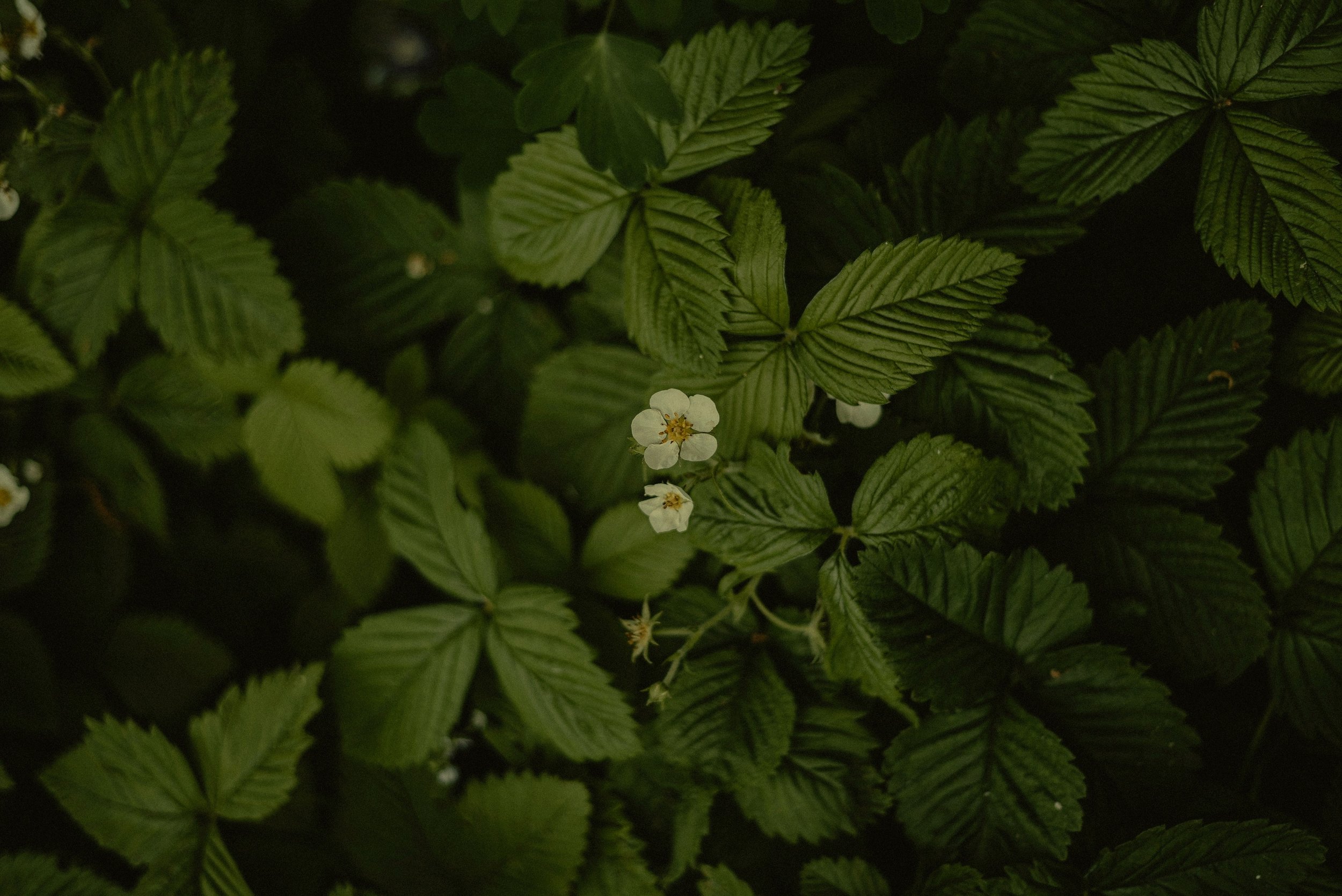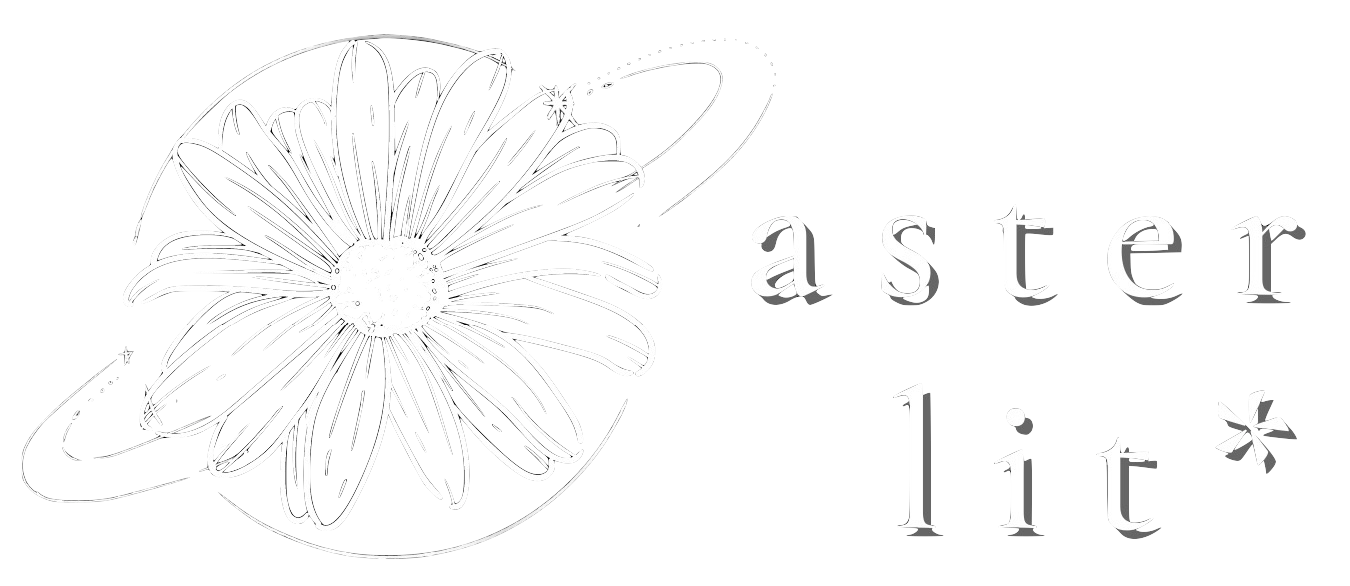
Aster Lit: translatability
Issue 12- Summer 2024
Seashells and Swamps
Nabeeha Sheikh
Points to consider before transcribing your life:
A khala is your mother’s sister. You also love her dearly.
You study and teach English professionally. Your family has mastered Urdu for generations immemorial.
You don't mean this to be an indirect diss to all the Phuppos—aunties of the neighbourhood. It is very direct indeed.
You tan when you stay on the beach. You need to let go of the beauty standards of Pakistan.
Capitalism has affected you internally. You currently live the American dream.
You hate to write chronologically.
A live transcript through the hole of Khala’s tea-set:
I was born on a cool, crisp morning. My mother tells me I had rosy cheeks and fair skin, as they show in the movies. “اتنی کالی کیوں ہو گئی ہو؟”
This is what translatability is. Or the lack thereof.
***
As I grow up, I think a thread is a body ready to defy all the laws of the universe. Then I study physics.
It almost always shies away from breaking. Tension
I think translatability is a thread.
***
"اردو کی تہذیب و ترنم انگریزی میں کہاں؟"
" آپ کا بچہ اپنی بری English کی وجہ سے یہاں qualify نہیں۔۔۔"
Juxtaposition. My favourite literary device. It reminds me of all the promises from my daddy, meray baba, the most familiar stranger in my life: unfulfilled.
My recurring memories testify to this: my cheeks flushing red and my lips shaking, my valedictorian speech laying flush wet, soaked on the ground.
Him staring ahead like a maniac father.
" تم نے اپنے ابا کا غصہ لیا تھا گھٹی میں!"
“You are your father's rage.”
I write after a month that day. It is one of the best pieces I have written, to date.
***
Wherever I go, these words never fail to catch up with me.
“You will regret not doing a masters in Urdu; a living proof of a failed lineage.”
“Maa Baap Urdu ke ustaad rahe, larki ko Dekho, Angrezi mein Masters karne chali hai!”
I wonder if I'll settle on the coast side. Would I be teaching a bunch of kids the prowess of Urdu that remains unmatched to English? With waves hitting my feet, wind coursing through my hair, would I think:
یہ سب انگریزی سیکھے بغیر ممکن نہیں ہوتا۔
Translatability requires a medium. A human shell, but more importantly, two languages; digressing from each other, tearing apart—still their amalgamation turns out to be more beautiful.
***
اپنے بڑے بھوڑوں کو یاد کیے بغیر زندگی نہیں کٹ سکتی۔
When I settle on the coastside, I stroll past as the salty breeze hits my cheek. It reminds me of the drips of water I used to store in a tub of hope. When I scavenge the decade before me, I find it scratching the kachi chaadarein of my parents’ room. Sometimes grief spills through these tin ceilings, but I knock down its path to block the swell of the bed. The water is not still, yet it runs deep enough to drench.
Unless your parents strain the tub to fill it again, the wood will swell. And the leak would never fill. If you do not translate your path to fruition, the efforts to voice out your own history will always be ineffective.
***
As the children pray, I feel the cramped roll of my leg. I envision my complaints etched on the sweaty sky. I hear the buzzing of mosquitoes: dead weight on the charpai. I remember:
مچھر صرف میٹھا خون ہی پیتے ہیں!
I bow down. I return to the present.
When we finish our activity, I tell the kids I grew in the آٹھویں wonder of the world. From the rubbish-laden streets to the best infrastructures of Pakistan, I tell the kids about my dynamic haven. They laugh heartily. I see the reflection of yearning in their eyes.
No matter how hard I narrate, I lack.
کوئی بات نہیں۔
They write.
All translations inherit the essence of their parental translations. Yet each cycle of generation is unique.
"ادب دل کی راہ چاہتا ہے۔ سطہی معنیٰ تو تم کہیں سے بھی کھوج لو گی۔"
***
I hate Pakistan. My father yells at me and my mother has a worried sick expression on her face. We're going to be late.
I tell the Foreign bystander that my khala has run into a fatal accident. “Girl, Girl, verge of death!”, my father exclaims. We do not make it to the hospital in time.
ہم اللہ کی طرف سے آئے ہیں اور اسی کی طرف لوٹ کر جانا ہے۔
إِنَّا لِلّهِ وَإِنَّـا إِلَيْهِ رَاجِعون
To Allah we belong, and it is to Him that we return.
No matter how many languages I try, the words don’t roll off my tongue. The syllables speak the haunting sounds of maatam—my mourning, yet every phrase is unintelligible. It is the first time in fifteen years that we don't celebrate my birthday.
***
When I'm 20, I cut my birthday cake. Rishtas have started tolling in, already. I'll find my perfect match in a year or two, and then I'll leave this god-forsaken work aside, the match-making aunty concludes.
I think of my Khala. My Rani. Princess.
I never fail to pray two ra’akats for her everyday.
***
When I'm 30, I celebrate my birthday with my kids. My husband watches over me with a lazy smile on his face. We drink Chai from my staple teapot. I say, today is my khala’s pandarveen barsi. Her fifteenth death anniversary.
She was a wonderful soul, my biggest supporter. She was a daughter, a sister, a wife, a mother, a mentor, an editor. All I am now. She spread ideas. I strive to complete my vow of illuminating the world—now, through, and beyond her wake. I think she smiles over me from heaven.
***
I miss Pakistan. I am 56. I see Baag-e-Jahan’s billboard in the remote countryside. I wonder when Ahmed, my son, will call me. I take a photo and share it in my family's group chat, Sheikhars. Considering their intrinsic commitment to community, it's a given we chat on the daily.
کس کو پتا تھا ہم پاکستانی بھی اپنا نام ایسے بنا سکتے ہیں؟
They are all surprised by the billboard. I am not.
Urdu is my soul. English is my home. I stroll forward with my husband. We stare at the billboard together, Gul mehek and Aslam glowing radiantly.
"واپسی چلیں؟"
In this timeline, I smile.
